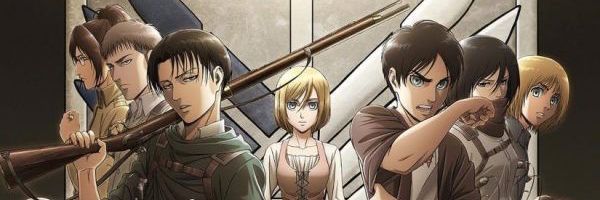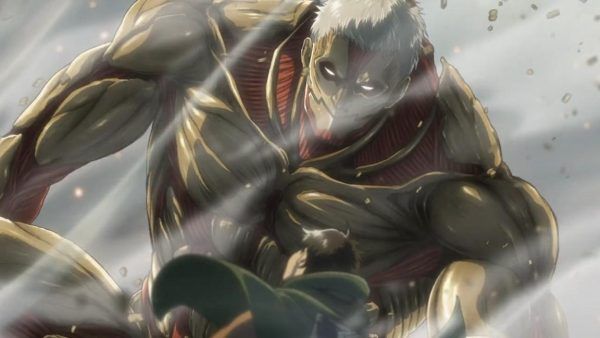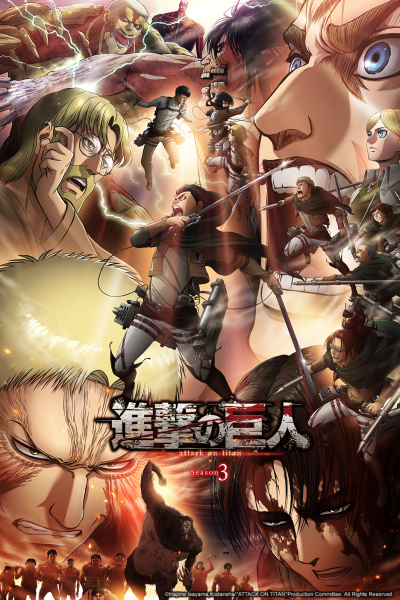Shingeki no Kyojin, known in the West as Attack on Titan just concluded the second part of its third season, and after six years and 59 episodes we finally got some answers. Naturally, the way there was paved with stunning action and heartbreaking deaths. Also unsurprisingly, the answers we got caused controversy, with some accusing the series of anti-Semitism and pro-fascism ideas. This is somehow fitting for what turned out to be the bleakest season in an already harrowingly dark show.
Spoilers ahead.
For the first two seasons, Attack on Titan managed to balance tragedy and loss with some sense of triumph. I even dared say the show was about giving us and the characters hope that at the end of all the horror there would be a happy ending – or at least something resembling one. While the first half of this season hinted at a deeper darkness than what the anime had explored, it wasn’t until these past 10 episodes that Attack on Titan went full nihilist and killed heroism.
At the same time, this season took a step back to take us on a trip down memory lane as often as possible, in order to build up on nostalgia before breaking down everything we thought we knew about the world of Attack on Titan.
Consider the first episode. Even the opening theme, Linked Horizon’s The Path of Longing and Corpses, feels like a mix of every opening before it and includes sound cues and lyrics from the other songs. Then the episode itself leaned heavily on nostalgia as Eren, Mikasa, and Armin step into Shiganshina for the first time in years, walking down familiar paths and looking at familiar buildings – all in ruins. Even the ending theme plays accompanied by a series of still images from previous seasons, showing the members of the 104th Training Corps in better days, reminding the audience of how much these characters changed, and how many of them are gone.
This being Attack on Titan, it didn’t take long to get right into the action. Those who thought the show had moved on from the human-on-Titan battles from the first season didn’t need to worry, as the Battle of Shiganshina was as epic as anything we had seen before. There has been some speculation and doubt that WIT Studio may not return to animate the show’s fourth and final season, which would be very unfortunate. The little studio has always done a good job, but they outdid themselves with the second half of the third season. Not only are the character designs and details better than ever, the action is simply stunning – and it couldn’t have happened at a better time. Watching Erwin and his soldiers raging and charging one last time could not have been as heartfelt without WIT Studio’s meticulous and brutal animation. The main reason Armin’s sacrifice brought tears to my eyes being the gorgeous and terrifying sight of the Colossal Titan’s bodily furnace roasting our little hero alive.
And sacrifice was a huge theme in this half of the season. Where the first half was about the loss of innocence as our young scouts discovered Titans were not their only enemies and that their government was a farce, the “Return to Shiganshina” arc was all about out – as Erwin would say – sacrificing our hearts. Attack on Titan has never shied away from killing characters. Indeed, a huge part of the show deals with characters sacrificing themselves for “the good of humanity”, but never has it killed as many characters in such a short amount of time. From smaller characters like the 200 nameless scouts that perished with Erwin, to those we actually got to know like the selfless Moblit and the gullible but dedicated Marlowe, to finally seeing the brutal and disheartening death of sweet, innocent Marco.
Attack on Titan has always delved in collectivism, the idea that individuals are nothing next to the collective whole and used it to justify showing dozens of soldiers die all the time for the sake of Eren, or Erwin, or the damned basement. What this last 10 episodes did differently, was ask whether all of that was worth a damn. When faced with complete annihilation, Floch starts to consider how meaningless his decision to join the scouts for this final mission was. “Somebody has to bite the bullet and risk taking action. In order for others to not become victims, we needed people to become the victims themselves. ‘Who will be that brave soldier?’ When I was asked that, I actually believed I could be that someone! But I never thought that being sent to my death would turn out to be so utterly meaningless in the end!”
When Erwin tried to convince the surviving scouts to play on his last gamble and do a suicide charge against the Beast Titan, he did so by bluntly telling then that they would die. “You will die, and your deaths will be in vain. But you must die so this plan works.” Is the best way to summarize every single one of Erwin’s and every other scout’s plans. As heartbreaking as it is to see Erwin “Captain America” Smith die before realizing his dream of knowing what lies beyond the walls, one could argue whether it was worth it at the end, as they now face an even more impossible enemy.
With Erwin’s sacrifice and the discovery of Grisha Jaeger’s past came huge revelations. As we found out, Marley blames the Eldians, also called the Subjects of Ymir, for a thousand years of violence and ethnic cleansing. In retribution, they treat those Eldians who didn’t flee to the walls as dogs, forcing them to live in ghettos and turning those they deem undesirable into mindless Titans. The cyclic nature of violence then plays a central role in this half-season of Attack on Titan, as does propaganda. The violence Marley blames the Eldian Empire for, they then passed on to modern-day Eldians. This, together with the brutal death of his sister, caused Grisha Jaeger to swear revenge against Marley, which brought him to indoctrinate his son Zeke’s mind to use him as a weapon against his oppressors, which then caused Zeke to sell his parents out and so on… ending on Eren swearing revenge against the Titans that killed his mom, and so the cycle goes on. It’s a bold move for a show to take the excitement and violence of watching soldiers fight against man-eating giants that made it popular in the first place, and turn it into a sad and tragic tale of innocent people being turned into monsters and forced into killing their own kin for sins committed by their ancestors hundreds of years before.
The final episode even doubles down on this, as Eren and company walk by a lonely Titan on their way to finally see the ocean (that looked more like a beach, but sure) and instead of instantly killing it, Eren lets it go. The losses have been too great, and even as our characters enjoy their first victory in years, it feels sour. As the surviving scouts take their first moment to relax in a long time as they marvel at the sight of saltwater and Mikasa even lets out a smile for once, Eren can’t help but point at the horizon and ask “If we kill every last one of our enemies out there, will we finally be free then?” We don’t know the answer, but the question is grim enough to be a concern. Eren fulfilled his promised and killed every single Titan he could find, but he also just discovered the entire world hates him just he exists. It is Attack on Titan fully embracing nihilism, and it remains to be seen whether it pays off, but I feel no reason to doubt Hajime Isayama or the show’s team.
These past 10 episodes have in many ways been the culmination of everything Attack on Titan has been building up since its beginning, I even compared the start of this season to the show’s version of Endgame, and in many ways it did pay off many of the story threads. But in many ways this season also felt like the end of a 59-episode long prologue, and though we only have one season to go, it feels like Attack on Titan is just getting started.



